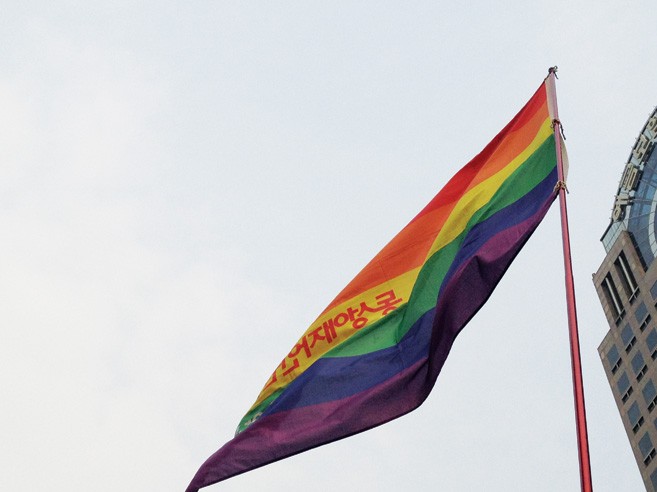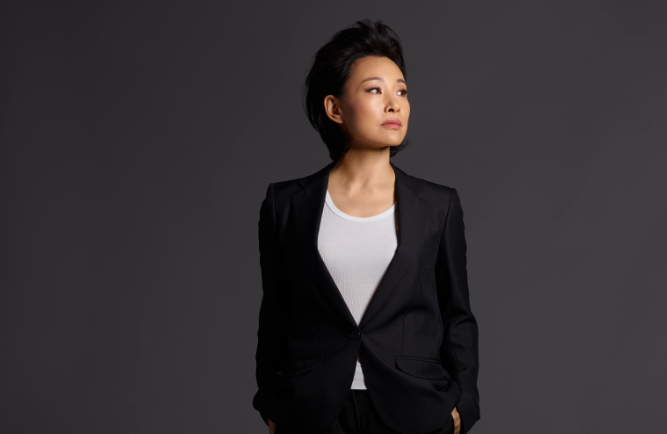by JAMES S. KIM | @james_s_kim
editor@charactermedia.com
South Koreans are becoming more open-minded and adopting increasingly favorable attitudes regarding LGBT rights and issues, according to a recent study by the Asan Institute for Policy Studies.
The South Korea-based think tank conducted five annual surveys of South Koreans from 2010-2014, noting that the trend was most noticeable among respondents in their 20s. In 2010, 26.7 percent said they were open-minded about homosexuality. By 2014, the figure nearly doubled to 47.4 percent.
The numbers also doubled for South Koreans in their 20s and 30s who supported the legalization of same-sex marriage, going from 30.5 percent and 20.7 percent respectively in 2010 to 60.2 percent and 40.4 percent in 2014.
But while more South Koreans are indeed changing their attitudes towards LGBT issues and same-sex marriage, they still represented a minority. The overall numbers are a bit more tempered: Respondents who had no reservations of homosexuality increased from 15.8 percent in 2010 to 23.7 percent in 2014, while those who supported legalizing same-sex marriage went from 16.9 percent in 2010 to 28.5 percent in 2014.
 Image courtesy of the Asan Institute for Policy Studies
Image courtesy of the Asan Institute for Policy Studies
The numbers among South Koreans in their 50s and 60s remained relatively unchanged in the last five years. Among religious respondents, 70.6 percent of Protestants had reservations about LGBT issues, compared to 41.9 percent of Catholics.
Along political lines, progressives have a firmer stance on LGBT issues than moderates or conservatives. The majority of progressives supported LGBT rights and were quite open-minded about homosexuality: 83.6 percent said they would accept or at least make an effort to accept LGBT family members, compared to 60.9 percent of conservatives who answered the same.
When it came to actual political discussion, however, the Asan Institute projected that LGBT topics were still likely to be overshadowed by economic and national security concerns. Politicians, therefore, are unlikely to take up an active stance, especially when there are no voting blocs to pressure them. LGBT people in South Korea aren’t clustered and typically hide their identities, the study noted.
South Korea has supported international laws and norms, most recently joining an effort last year with the United Nations Officer of the High Commissioner for Human Rights (OHCHR) to adopt international human rights standards to protect LGBT individuals from torture, discrimination and violence. When it comes to domestic politics, however, LGBT topics are a “major deal breaker.”
A 2007 anti-discrimination bill reinforcing basic human rights in South Korea ran into staunch conservative opposition due to sexual minorities being named as one of the principal beneficiaries. The bill was reintroduced in 2010 and again in 2013, but the National Assembly voted to repeal the legislation the last time. In October 2014, a bipartisan human rights education bill for government employees also met opposition from Christian and conservative groups who argued that the bill promoted homosexuality. The bill was repealed a month later.
LGBT issues perhaps garnered the most national attention in South Korea last year, when Seoul Mayor Park Won-soon, a former human rights lawyer, said in an interview with the San Francisco Examiner that he “personally agree[d] with the rights of homosexuals” and hoped that Korea would be the first Asian country to legalize same-sex marriage.
His comments drew heavy controversy after South Korean media picked up on them, and conservative groups criticized the mayor of supporting homosexuality and only doing so to gain political favor. Park backtracked on his comments and one of his election pledges, the Seoul City Charter of Human Rights. The charter had included a clause that prohibited discrimination based on one’s sexual orientation and identity.
The Asan Institute noted that Mayor Park was the first prominent politician to bring LGBT issues to the forefront as a serious political and social issue. Although his backtracking may not serve as much confidence for future politicians to follow suit, the Asan Institute said LGBT activists can take over the conversation by “framing the issue within the universal context of anti-discrimination and human dignity” rather than “seeking privileges.”
Park reportedly said something similar to the Examiner: “Protestant churches are very powerful in Korea [so] it isn’t easy for politicians [to endorse same-sex marriage]. It’s in the hands of activists to expand the universal concept of human rights to include homosexuals. Once they persuade the people, the politicians will follow. It’s in process now.”
___
Recommended Reading:
“Gay Rights Activists in Korea Step Up to Support LGBTQ Youth”







